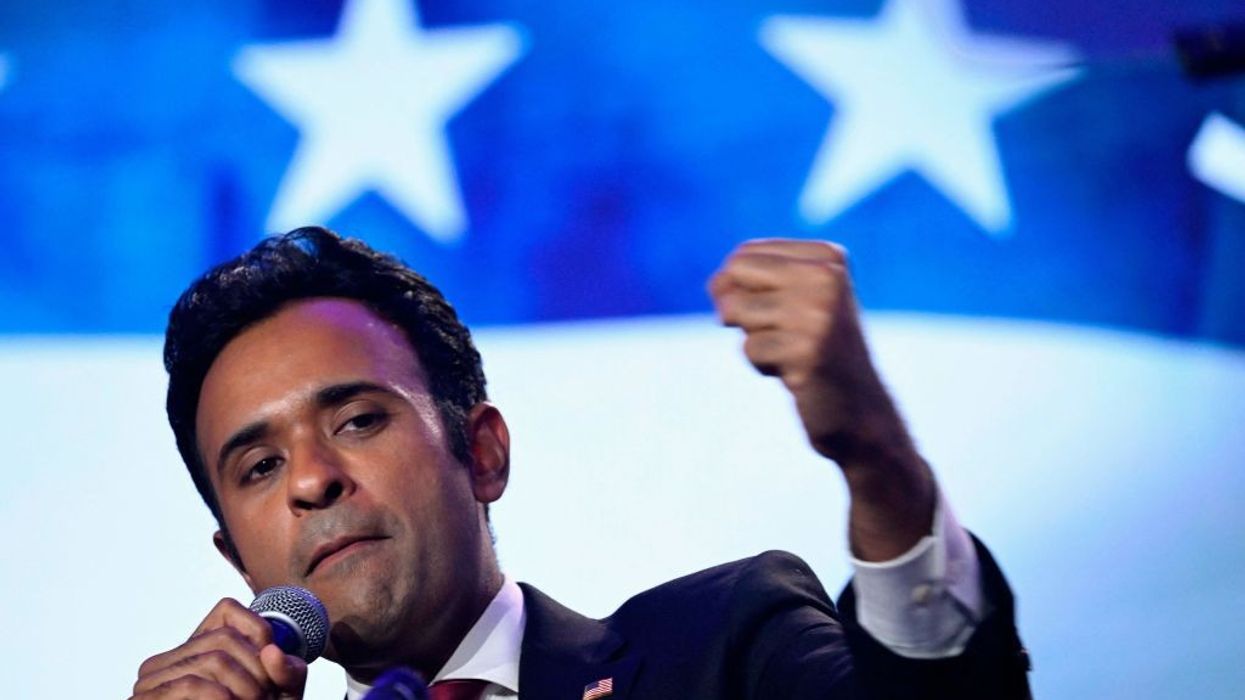CALLING the H-1B visa programme "indentured servitude", Indian-American Republican presidential aspirant Vivek Ramaswamy has vowed to "gut" the lottery-based system and replace it with meritocratic admission if he wins the race to the White House in 2024.
The H-1B visa, the much-sought-after among Indian IT professionals, is a non-immigrant visa that allows US companies to employ foreign workers in speciality occupations that require theoretical or technical expertise.
Technology companies depend on it to hire tens of thousands of employees each year from countries like India and China.
Ramaswamy himself has used the visa programme 29 times. From 2018 through 2023, US Citizenship and Immigration Services approved 29 applications for Ramaswamy's former company, Roivant Sciences, to hire employees under H-1B visas.
Yet, the H-1B system is "bad for everyone involved," Ramaswamy was quoted as saying by Politico.
"The lottery system needs to be replaced by actual meritocratic admission. It's a form of indentured servitude that only accrues to the benefit of the company that sponsored an H-1B immigrant. I'll gut it," he said in a statement, adding that the US needs to eliminate chain-based migration.
"The people who come as family members are not the meritocratic immigrants who make skills-based contributions to this country."
Ramaswamy stepped down as chief executive officer of Roivant in February 2021, but remained the chair of the company's board of directors until February this year when he announced his presidential campaign.
As of March 31, the company and its subsidiaries had 904 full-time employees, including 825 in the US, according to its Securities and Exchange Commission filings.
When asked about the mismatch in the Republican presidential hopeful's policy stance and his past business practices, press secretary Tricia McLaughlin said the role of a policymaker "is to do what's right for a country overall: the system is broken and needs to be fixed."
"Vivek believes that regulations overseeing the US energy sector are badly broken, but he still uses water and electricity," she said in a statement. "This is the same."
Ramaswamy, who is himself the child of immigrants, has captured headlines for his restrictionist immigration policy agenda.
He also said he would use military force to secure the border, and that he would deport US-born children of undocumented immigrants.
H-1B visas are highly sought after, and the demand for these workers continues to increase. For fiscal year 2021, US businesses submitted 780,884 applications for just 85,000 available slots, jumping by more than 60 per cent.
Ramaswamy's stance on H-1B visas is reminiscent of the 2016 Trump campaign, when then-candidate Donald Trump, who has also hired a number of foreign workers under H-1B visas for his businesses, took a hardline stance on these foreign workers before later softening his rhetoric.
As president, Trump temporarily suspended new work visas and blocked hundreds of thousands of foreign workers from US employment, as part of his sweeping effort to limit the number of immigrants coming into the US.
Every year, the US gives 65,000 H-1B visas which are open to all and 20,000 to those with advanced US degrees.
In July, Indian-American Congressman Raja Krishnamoorthi introduced a bill proposing to double the annual intake of highly skilled foreign workers on H-1B work visas coveted by Indian professionals.
(PTI)





